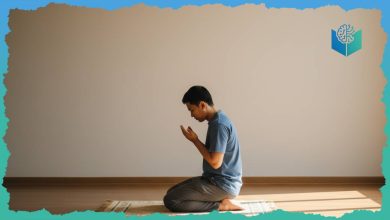Five Pillars of Islam

Islam is not only a religion, it is a complete way of life built on faith, worship, discipline, and compassion. At its heart lies a structure that defines every Muslim’s relationship with Allah and with humanity: the Five Pillars of Islam. These five fundamental duties provide a spiritual foundation and a practical framework that guide believers toward balance, gratitude, and obedience to God.
Understanding these pillars is essential for anyone seeking to learn about Islam, as they represent the core practices that shape the Muslim identity across cultures and centuries. Each pillar nurtures the soul while strengthening moral and communal responsibility.
“Indeed, my prayer, my rites of sacrifice, my living and my dying are for Allah, Lord of the worlds.” (Quran 6:162)
What Are the Five Pillars of Islam?
The Five Pillars of Islam are the essential acts of worship and obedience that every Muslim must observe. They include:
- Shahadah: The declaration of faith
- Salah: The five daily prayers
- Zakat: The giving of alms or charity
- Sawm: Fasting during Ramadan
- Hajj: The pilgrimage to Mecca
Each of these pillars connects the believer to Allah through devotion, self-discipline, and compassion toward others. Together, they form the essence of Islamic basics and reveal how spirituality and daily life are inseparable in the Muslim worldview.
The Shahadah: The Declaration of Faith
The Shahadah is the cornerstone of Islamic belief, declaring that “There is no god but Allah, and Muhammad is His Messenger.” This declaration is not just words but a lifelong commitment to live in submission to Allah and follow His guidance in every aspect of life.
The Heart of All Belief
The Shahadah, or declaration of faith, is the first and most important pillar. It is the testimony that “There is no god but Allah, and Muhammad is the Messenger of Allah.” This statement affirms both monotheism and prophethood; the foundation of all core beliefs in Islam.
The Shahadah is more than words; it is a commitment that transforms one’s outlook on life. A Muslim who recites it does not simply proclaim belief in Allah but accepts a lifelong duty to live according to divine guidance revealed in the Quran.
“So know that there is no deity except Allah and ask forgiveness for your sin.” (Quran 47:19)
Through the Shahadah, every Muslim consciously places faith at the center of their existence, reaffirming that all power, purpose, and peace come only from Allah.
Salah: The Five Daily Prayers
Salah, the ritual prayer performed five times a day, keeps a Muslim connected to Allah throughout daily life. It teaches discipline, humility, and mindfulness, while fostering a constant awareness of God’s presence and mercy.
A Daily Connection with the Divine
The second of the Five Pillars of Islam is Salah, the ritual prayer performed five times a day. It serves as a spiritual reminder of Allah’s presence and a discipline that nurtures the soul. Muslims pray at dawn, noon, afternoon, sunset, and night, following the rhythm of the sun.
“Indeed, prayer has been decreed upon the believers a decree of specified times.” (Quran 4:103)
Through Salah, believers express gratitude, seek forgiveness, and find peace in remembrance of God. This practice embodies both humility and mindfulness; essential values in Islam basics.

The Spiritual Meaning of Prayer
Each prayer begins with standing before Allah in submission and ends with peace extended to the world. The physical movements, such as standing, bowing, prostrating, and sitting, reflect a full cycle of devotion, symbolizing the believer’s surrender and harmony with divine will.
When performed sincerely, Salah becomes more than a ritual; it becomes a moment of tranquility and renewal, reinforcing one’s spiritual connection with Allah throughout the day.
Zakat: The Charity That Purifies Wealth
Zakat is the act of giving a portion of one’s wealth to those in need, purifying both money and heart. By sharing resources, Muslims strengthen social bonds, combat inequality, and express gratitude to Allah for His blessings.
The Social Responsibility of Faith
The third pillar, Zakat, means “to purify” or “to grow.” It requires Muslims to give a portion of their wealth (typically 2.5%) to those in need. This practice highlights that faith is not only about prayer but also about compassion and social justice.
“Take from their wealth a charity by which you purify them and cause them to increase.” (Quran 9:103)
Zakat purifies wealth by reminding believers that everything they own is a trust from Allah. It also bridges the gap between the rich and the poor, fostering a community based on care and equality.
Zakat as One of the Core Beliefs in Islam
This pillar embodies the core beliefs in Islam regarding fairness and mercy. Islam views wealth as a tool to uplift others, not as a means of pride or separation. By practicing Zakat, Muslims protect their hearts from greed and contribute to building a society rooted in justice and generosity.
In the modern world, platforms like Ayaat can help believers better understand how to fulfill such religious obligations in line with Quranic guidance, ensuring that acts of charity remain both spiritual and effective.
Sawm: Fasting During Ramadan
Sawm, fasting during Ramadan, is a time for spiritual reflection, self-discipline, and empathy for those less fortunate. Beyond abstaining from food and drink, it encourages believers to purify their thoughts and actions while increasing devotion to Allah.
A Month of Reflection and Renewal
The fourth pillar, Sawm, refers to fasting during the holy month of Ramadan. Muslims abstain from food, drink, and other physical needs from dawn to sunset, focusing instead on prayer, reflection, and charity.
“O you who have believed, decreed upon you is fasting as it was decreed upon those before you that you may become righteous.” (Quran 2:183)
Fasting is a powerful act of self-control and empathy. It teaches patience, gratitude, and awareness of those who struggle with hunger daily. Ramadan becomes a month of spiritual renewal, where believers strengthen their relationship with Allah and practice compassion in its purest form.
Beyond Physical Fasting
While abstaining from food and drink is central, the essence of Sawm lies in controlling one’s behavior, speech, and thoughts. A true fast means refraining from anger, gossip, and selfishness. Through fasting, Muslims experience humility and purify their hearts, aligning their actions with divine will, one of the deepest core beliefs in Islam.
Hajj: The Pilgrimage to Mecca
Hajj is the pilgrimage required at least once in a lifetime for those who are able. It is a profound act of unity and submission, where millions gather to perform rituals that honor the legacy of Prophet Ibrahim and strengthen the global Muslim community.

The Journey of a Lifetime
The fifth and final pillar, Hajj, is the pilgrimage to the holy city of Mecca in Saudi Arabia. Every adult Muslim who is physically and financially able must perform it at least once in their lifetime.
“And complete the Hajj and ‘Umrah for Allah.” (Quran 2:196)
Hajj is not just a physical journey—it is a spiritual rebirth. Millions of Muslims from around the world gather in unity, dressed in simple white garments, symbolizing equality before Allah. The rituals of Hajj—circling the Kaaba, standing at Arafat, and performing symbolic sacrifices—commemorate the trials and devotion of Prophet Ibrahim and his family.
The Universal Message of Hajj
The Hajj represents the ultimate expression of humility and submission. It reminds Muslims that status, wealth, and nationality vanish in the presence of God. Every pilgrim stands equal, reaffirming that humanity is one community under one Creator.
For many, learning about Islam begins with understanding this pilgrimage that is a symbol of faith, unity, and peace which transcends borders.
The Pillars of Islam Explained: A Unified Path
The Five Pillars together form a complete system that balances personal faith with social responsibility. Each pillar reinforces the others, guiding Muslims toward spiritual growth, moral behavior, and a meaningful life aligned with Allah’s commands.
Faith in Action
When we look at the Pillars of Islam explained together, we find that each pillar complements the others. Shahadah anchors belief, Salah strengthens connection, Zakat purifies wealth, Sawm disciplines the soul, and Hajj unites the global Muslim community.
Together, they form a complete spiritual system that balances inner faith with outward action. These five duties of Muslims cultivate mindfulness, justice, and gratitude; virtues that define a believer’s relationship with Allah and society.
“The believers are but brothers, so make settlement between your brothers.” (Quran 49:10)
A Guide for Every Generation
The beauty of these pillars lies in their timeless relevance. No matter where Muslims live or what era they belong to, the Five Pillars remain a source of structure and purpose. They remind believers that faith is not confined to mosques or rituals but extends to every moment of life, like family, work, and community.
Platforms like Ayaat make exploring these teachings even easier by providing digital tools to study Quranic verses and understand Islamic principles more deeply.
The Spiritual Depth of the Five Duties of Muslims
Each of the Five Pillars is more than a ritual; it is a pathway to inner transformation. By performing these duties with sincerity, Muslims cultivate patience, gratitude, humility, and a deeper connection with Allah.
From Ritual to Reflection
The five duties of Muslims are not meant to be mechanical obligations. Each act, whether prayer, fasting, or charity, serves as a form of reflection that brings believers closer to Allah. The physical act is only the beginning; the true purpose lies in spiritual transformation.
When a Muslim prays, fasts, or gives Zakat, they renew their intention to live righteously. Islam emphasizes sincerity in every action, teaching that the value of a deed depends on one’s intention.
“Actions are but by intentions, and every person will have what they intended.” (Quranic principle reflected in Islamic ethics)
Building a Life Around Faith
By practicing the Five Pillars consistently, a believer cultivates a life anchored in mindfulness and morality. Salah keeps the heart connected, Zakat keeps wealth pure, Sawm purifies the soul, and Hajj crowns the believer’s journey with unity and gratitude.
These pillars form the rhythm of a Muslim’s existence, ensuring that every day, month, and year revolves around remembrance of Allah.

Islam Basics: Beyond the Five Pillars
While the Five Pillars provide structure, Islamic basics also include belief in Allah, angels, prophets, divine scriptures, and the Day of Judgment. These principles guide moral conduct and spiritual understanding, shaping a complete Islamic worldview.
A Holistic Faith
While the Five Pillars provide the framework, Islamic basics also include beliefs in angels, prophets, divine scriptures, the Day of Judgment, and predestination. These elements form the core beliefs in Islam, shaping how Muslims view life, morality, and destiny.
Islam is both a personal and communal path; it encourages believers to serve others, uphold justice, and seek knowledge. Its teachings emphasize that faith must translate into good character, mercy, and social responsibility.
“Indeed, Allah commands justice, good conduct, and giving to relatives.” (Quran 16:90)
The Role of Modern Learning Platforms
In today’s world, understanding the Five Pillars of Islam and related teachings is easier than ever. Many learners turn to online resources like Ayaat, a free digital platform that makes studying the Quran and Islamic principles accessible to everyone.
Unlike paid resources, Ayaat offers free, interactive access to Quranic verses, tafsir, and thematic study tools that help users understand the wisdom behind the Pillars of Islam, explained directly from authentic sources.
Living the Five Pillars in Modern Life
The Five Pillars remain relevant today, offering guidance in a fast-paced world. They help Muslims maintain spiritual focus, ethical behavior, and a balanced lifestyle, ensuring that faith permeates every aspect of daily living.
Balancing Faith with Modern Challenges
In a world filled with distractions, maintaining consistency in faith can be difficult. Yet, the Five Pillars of Islam provide stability amid chaos. They encourage balance between spiritual and worldly responsibilities, reminding believers of their purpose and accountability.
Performing Salah regularly grounds the mind; fasting builds discipline; charity connects hearts; and pilgrimage fosters unity. These practices keep Muslims spiritually centered even in fast-changing societies.
Faith That Transcends Time
The Five Pillars are not relics of the past—they are a living blueprint for a meaningful life. Whether in the 7th century or the 21st, these pillars continue to inspire millions to live with integrity, compassion, and devotion.
Their simplicity is their power: they transform everyday acts—eating, working, giving—into acts of worship. That is the beauty of Islam—it sanctifies the ordinary, turning life itself into a form of remembrance.
Conclusion: The Five Pillars as a Path to Eternal Success
The Five Pillars of Islam are more than duties—they are a divine framework for inner peace and moral excellence. They shape the rhythm of a Muslim’s life from dawn to dusk, from youth to old age. By observing them, believers live in harmony with both creation and Creator.
These pillars remind every Muslim that faith is not confined to belief alone but is expressed through action, compassion, and sacrifice.
“And whoever submits his face to Allah while being a doer of good—then he has grasped the most trustworthy handhold.” (Quran 31:22)
For anyone seeking to learn about Islam, understanding these pillars is the first step toward spiritual clarity. And with modern platforms like Ayaat, exploring the divine wisdom behind each pillar has never been more accessible.
Q&A
What are the 5 pillars of Islam in order?
The Five Pillars of Islam, in order, are Shahadah (faith), Salah (prayer), Zakat (charity), Sawm (fasting), and Hajj (pilgrimage). They form the foundation of a Muslim’s spiritual and practical life.
Are the 5 pillars Sunni or Shia?
The Five Pillars are fundamental to both Sunni and Shia Islam, though Shia practice may include slight variations in ritual details. The core duties remain universally recognized across Islamic sects.
Who decided the 5 pillars of Islam?
The Five Pillars were established through the teachings of Prophet Muhammad ﷺ, derived directly from the Quran and his Sunnah, forming the essential acts of worship for all Muslims.





